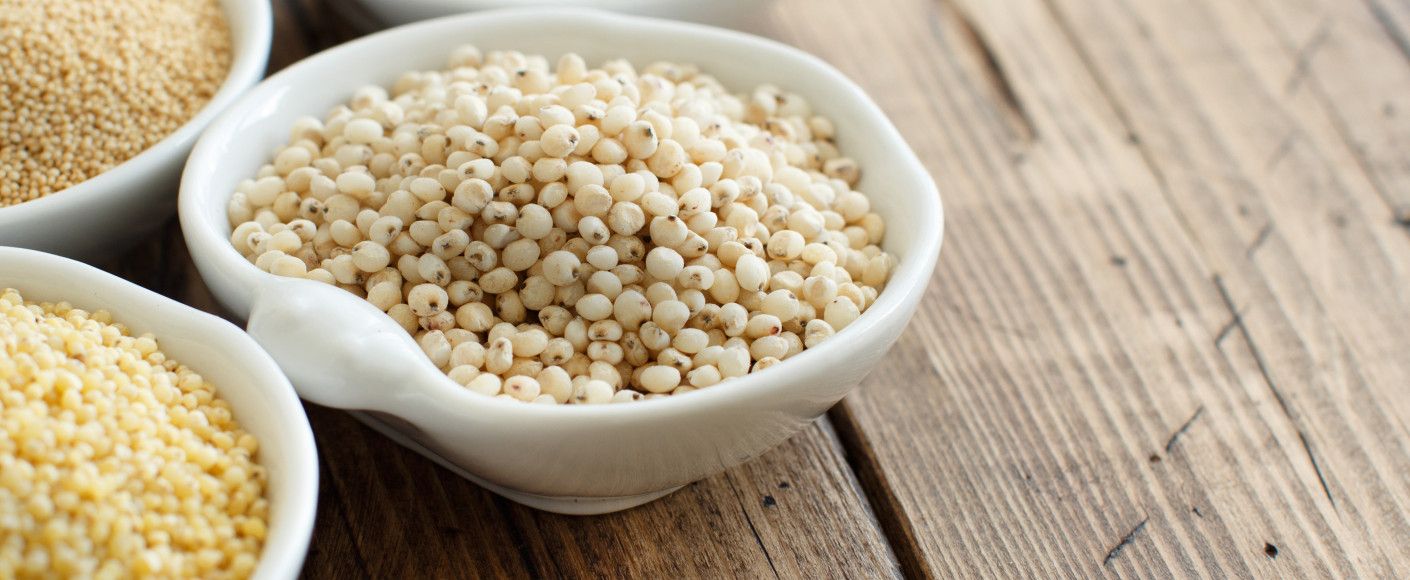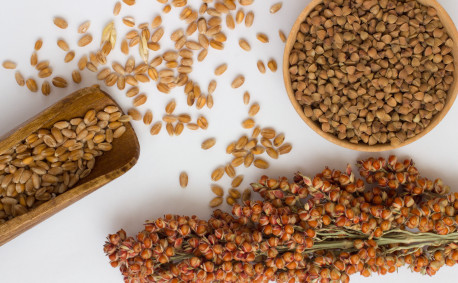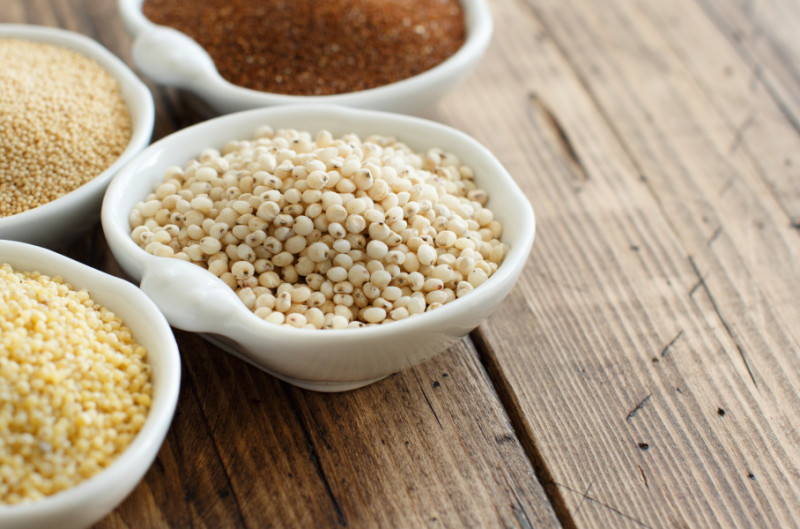Health Benefits of Sorghum
Sorghum, also called milo, is one of the top crops in Kansas. If you’re not familiar with it, it’s a great grain to introduce to your diet. (And if you are familiar with it, you already know it’s a great staple to serve at your table!)
High in fiber and antioxidants, sorghum has a mild, earthy taste that will add a touch of umami to your meals. This hearty grain can be used as a side or snack, in baking, soups and even desserts in its syrup form. Like rice and couscous, grain sorghum is very versatile. It’s also good for you.
Here are some of the key nutrients — and their benefits — found in sorghum.
Protein
Vital to healthy bones, muscles and skin, protein is an important nutrient for your diet. Many people look to meat, dairy and beans for protein. Some grains, like sorghum, are also great sources of protein.
Sorghum is made up of about 10 percent protein, meaning you’ll build a stronger system while getting healthy, complex carbohydrates.
Complex Carbohydrates
Made up of about 75 percent complex carbohydrates, sorghum is a great source of energy. It’s also low on the glycemic index, which means fewer energy spikes and dips throughout the day for you.
Sorghum can also help with digestion. As a complex carbohydrate, it’s rich in fiber, which moves things along in our systems. It also has prebiotics, those components that help foster healthy gut bacteria.
Antioxidants
We often hear about vibrantly colored fruits and vegetables being rich in antioxidants. Well, move over, blueberries, because two types of sorghum (the sumac and black varieties) have been shown to have higher levels of antioxidants.
Antioxidants may help reduce risk of chronic diseases like cancer, diabetes and heart disease by fighting free radicals (waste cells in our bodies that stress our systems). Antioxidants also help reduce inflammation and may even benefit some nerve-related diseases.
B Vitamins
B vitamins include thiamin, niacin, B6 and pantothenic acid. Each one has been linked to different aspects of our health, including lower risk of heart disease, lower risk of certain types of cancer, improved brain function and reduced PMS symptoms.
These vitamins can also help boost immunity, improve circulation, increase levels of good cholesterol (high-density lipoprotein, or HDL) and keep blood sugar levels in balance.
Minerals
Sorghum has a wealth of minerals. Here are a few that play an important role in keeping us healthy.
Iron
Iron is an essential mineral that boosts your immune system and helps blood move oxygen throughout your body.
Magnesium
Magnesium is key to building and maintaining strong bones. It works with vitamin D and calcium to help absorb calcium and increase bone density and reduce the risk of osteoporosis. Diets rich in magnesium may also help lower the risk of diabetes, stroke and migraines.
Phosphorus
Phosphorus is found in our bones, teeth, cell membranes and genetic material. Like magnesium, it also works with vitamin D and calcium to help maintain strong bones. Phosphorus can also help reduce the risk of heart disease.
Potassium
This mineral helps our muscles and nerves function, and keeps fluid levels in check (think less water retention). Diets high in potassium have been linked to lower blood pressure, lower risk for stroke and protection against osteoporosis.
Sorghum is also naturally gluten-free. So, the next time you’re looking for a grain side dish or want to bake a celiac-friendly recipe, give sorghum a try! Your body and taste buds will thank you.





